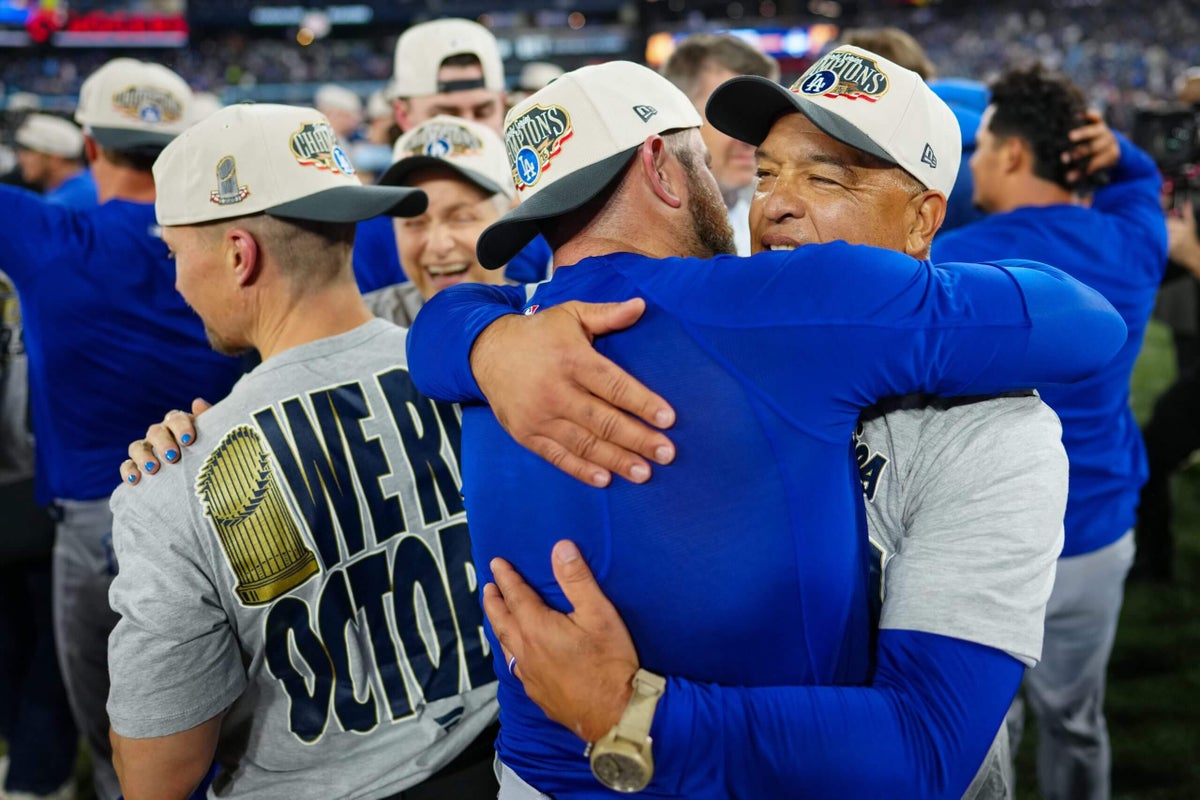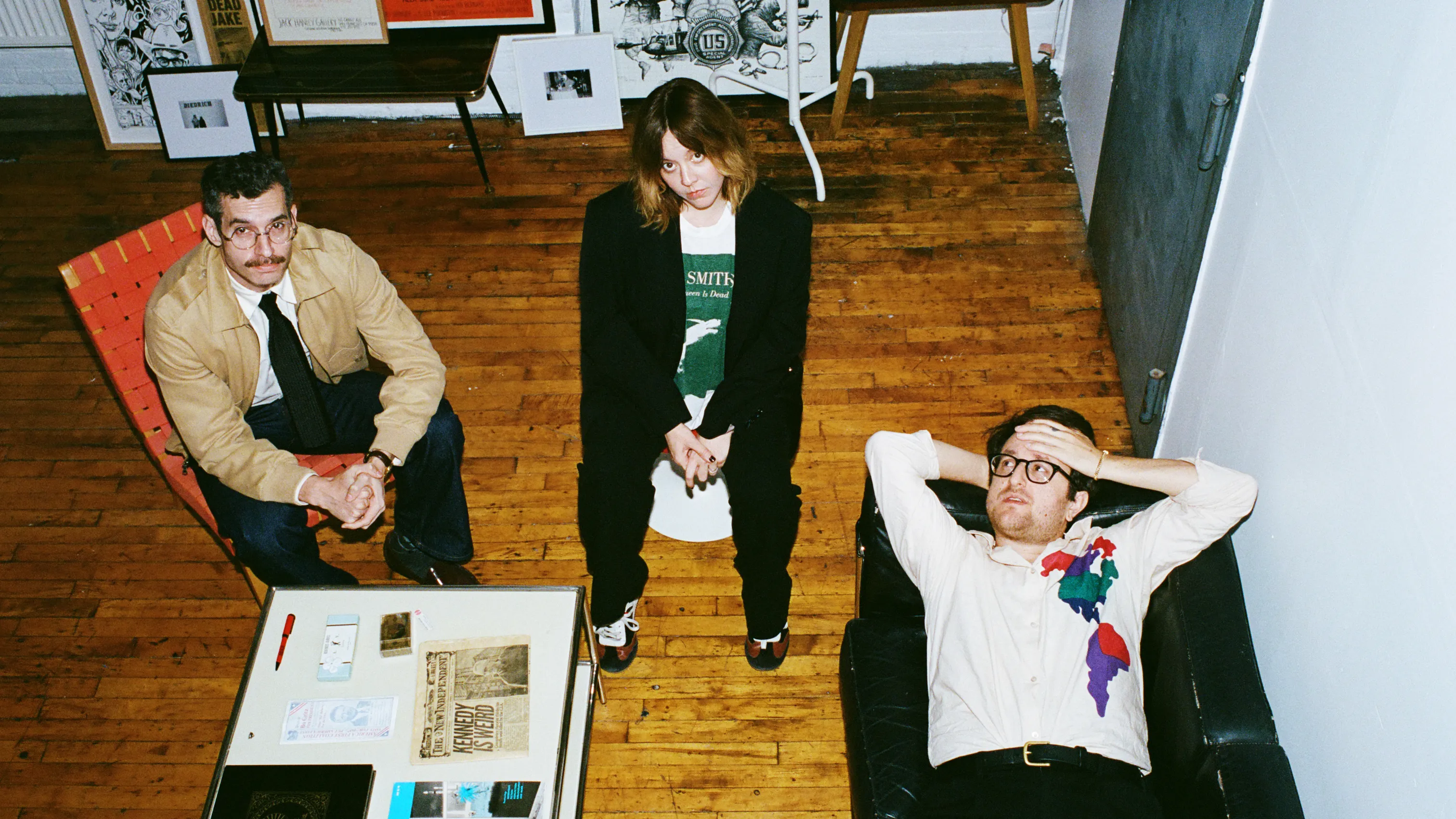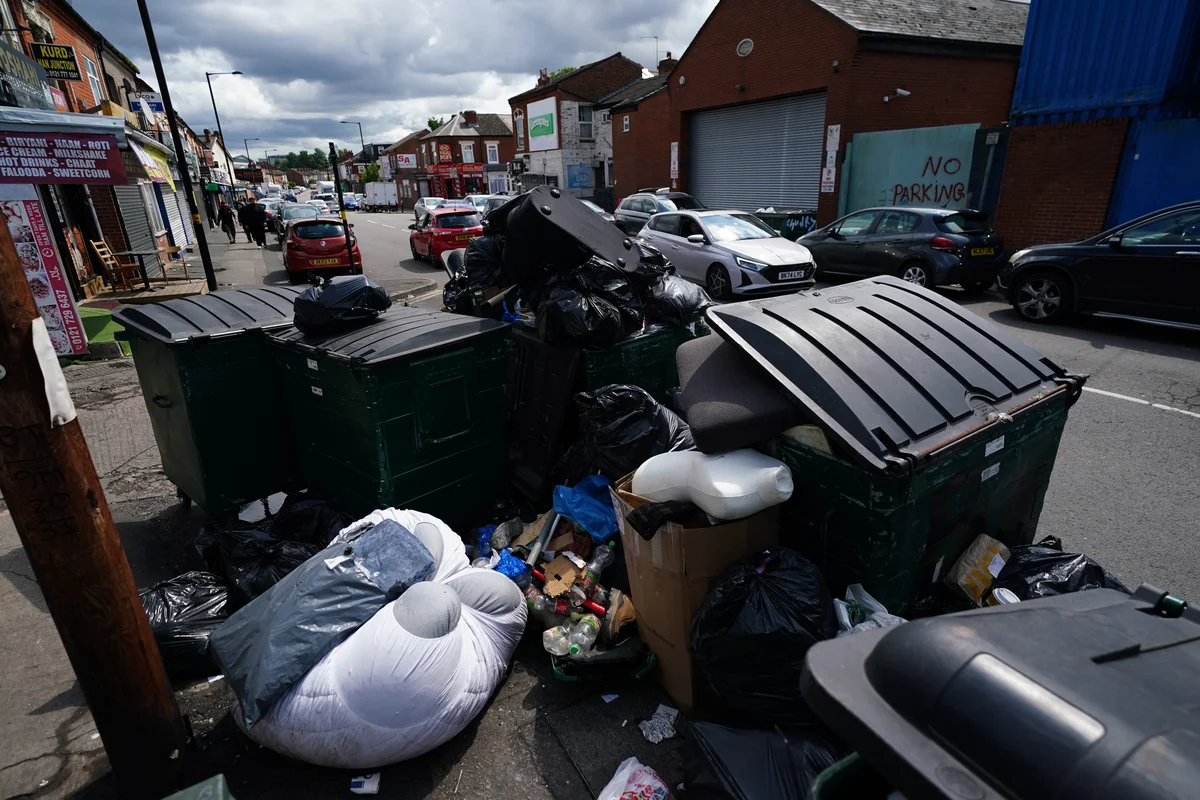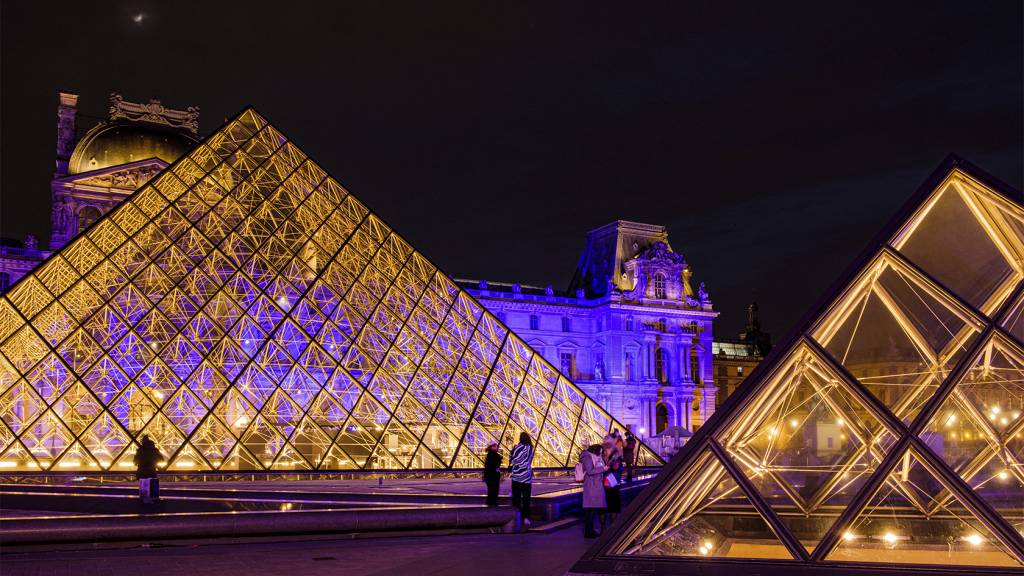Copyright The New York Times

TORONTO – Before the thrilling Game 7 that concluded one of the best World Series in recent memory, Los Angeles Dodgers manager Dave Roberts was pondering the meaning of grit. Roberts said the best definition he heard was from researcher and podcaster Brené Brown. Actually, it was from psychologist Angela Duckworth. Whatever, Roberts liked the characterization, the description of grit as a combination of passion and perseverance for a singularly important goal. “That is what this team exemplifies,” Roberts said. You can despise the Dodgers for escalating their payroll to almost $400 million. You can despise them for cornering the market on Japanese stars. You can even accuse them of ruining baseball. But after their 5-4 victory in 11 innings Saturday night in Game 7 of the World Series, you have to admire the way they became the first back-to-back champions since the 1998 to 2000 New York Yankees. With passion, perseverance and yes, grit. The Toronto Blue Jays were the better team for most of the Series. They outscored the Dodgers, 34-26. Held them to a .203 batting average. And in Game 7, led 3-0 after three innings and were two outs away from their first Series title since 1993. Somehow, the Dodgers prevailed, becoming only the ninth team out of 32 to win Games 6 and 7 on the road in a best-of-seven World Series. Virtually every one of their players contributed, from high-priced starting pitchers working on short or no rest to lesser-known types who materialized seemingly out of nowhere to become Series stars. “Everyone talks about the Dodgers and how much money we spend and how we’re supposed to do this, and all this stuff,” retiring left-hander Clayton Kershaw said. “I tell you what, man. You can’t buy the character, the heart and the willingness to do things that other people wouldn’t do.” Roll your eyes if you must. But consider what actually happened in Game 7, too. Series MVP Yoshinobu Yamamoto volunteered to work out of the bullpen in the 18-inning Game 3 two days after throwing a complete game in Game 2. He made the same offer for Game 7 after throwing six innings in Game 6 the previous night. This time the Dodgers took him up on it, and he earned the win by finishing the game with 2 2/3 scoreless innings. The Dodgers’ starting pitcher, Shohei Ohtani, without hesitation agreed to pitch on three days rest in Game 7 for only the second time in his major-league career (and the first one didn’t really count, coming as it did after a two-inning stint in a 2023 start interrupted by rain). The plan backfired, with Ohtani allowing a three-run homer by Bo Bichette in the third inning. Not to worry, two younger pitchers and three other prominent Dodgers starters came to Ohtani’s rescue. Tyler Glasnow, after earning a three-pitch save in Game 6, worked on back-to-back days for the first time in his career, pitching 2 1/3 innings. Blake Snell made his first relief appearance since 2019, holding the Jays scoreless and keeping the deficit to one run after Ernie Clement led off the eighth with a double. And then came Yamamoto. His back-to-back complete games in the postseason, the first since Curt Schilling produced three straight in 2001, were almost incomprehensible in an era in which so few starting pitchers work into the late innings. His willingness to pitch back-to-back days at the end of a 7 1/2-month season left his manager, coaches and teammates further dumbfounded. The last pitcher to start Game 6 and pitch in relief in Game 7 of the World Series was Randy Johnson in 2001. Roberts talked about Yamamoto’s “mind component” and “flawless delivery” and “unwavering will.” But Yamamoto’s level of sacrifice, while extreme, was actually consistent with how the Dodgers operate. “The amount of support we give one another, how much we push each other to be great, how much we push our own expectations within the group, is unbelievable,” Snell said. It’s not just talk. Catcher Will Smith, who hit the go-ahead homer in the 11th, caught all 73 innings for the Dodgers, setting a record for the most in a World Series. And Game 7 ended with a double play started by Mookie Betts, a former right fielder who plays shortstop because it is where his team needs him most. Before Game 6, Roberts explained why he was inserting Miguel Rojas into the lineup at second base even though the veteran hadn’t had a base hit since Oct. 1. Roberts called Rojas “a great teammate” and “glue guy,” a player who would inject energy into the Dodgers offensively and defensively, even at age 36. “I wasn’t going to let this Series go by and this guy not be in the lineup,” Roberts said. The Dodgers acquired Rojas from the Miami Marlins in Jan. 2023 for infielder Jacob Amaya, who since has been with three other organizations and is now a free agent. But Rojas isn’t the only Dodger who joined the team as a modest acquisition. Through superior player development, the Dodgers often turn minor moves into mini-coups. Reliever Will Klein, who pitched four scoreless innings to close out the 18-inning victory in Game 3, is one example — he arrived from Seattle in a June trade for lefty Joe Jacques. Third baseman Max Muncy, who hit the eighth-inning home run in Game 7 that pulled the Dodgers within 4-3, is another. The Dodgers originally signed Muncy as a minor-league free-agent signing in April 2017. His home run was the 16th of his career in the postseason, a franchise record. Center fielder Andy Pages, who came off the bench to knock over left fielder Kiké Hernández for a spectacular catch that ended the Jays’ bases-loaded threat in the ninth, was another development success story, a $300,000 international signing out of Cuba. The Dodgers’ farm system routinely rates highly, even though the team’s run of 13 consecutive postseason appearances routinely forces it into low draft positions. Lefty Justin Wrobleski and righty Emmet Sheehan, who combined for 2 1/3 scoreless innings in Game 7, were sixth- and 11th-round picks in 2021, respectively. Klein, Pages, Wrobleski and Sheehan all earn around the major-league minimum. Rojas’ $5 million salary, too, is a relative pittance by Dodgers standards. Yet his value was never more apparent than in the final two games. Rojas went 0-for-3 in Game 6 but contributed several outstanding defensive plays in the Dodgers’ 3-1 victory. That performance was but a prelude. In Game 7, Rojas became a Dodgers legend. First, Rojas hit a game-tying, one-out homer in the ninth off Jays closer Jeff Hoffman, only his second homer off a right-handed pitcher all season. Then, on a grounder by the Jays’ Daulton Varsho with one out and the bases loaded in the bottom half, Rojas lost his balance but preserved the tie by throwing home for the force on Isiah Kiner-Falefa. Not bad for a player who lost his job at shortstop to Betts, then helped reacquaint him to the position. A player who suffered “a little bit of a rib thing” during Game 6 that forced him out of Game 7 before the bottom of the 11th. A player the game honored, Roberts said, because he honors the game. “It couldn’t have been a better guy,” Muncy said. “Oh my gosh. You talk about the ultimate team guy. When he wasn’t getting playing time, he went to the coaches and said, ‘Hey, how can I help out?’ And he did everything they asked to do. For him to get that home run to tie it up, it brings tears to my eyes just thinking about it.” At the start of the World Series, Kiké Hernández stated flatly – and accurately – that the 2025 Dodgers were more talented than the 2024 edition. But Hernández wasn’t sure of the team’s personality, mentioning catcher Austin Barnes, center fielder Kevin Kiermaier and pitchers Jack Flaherty, Daniel Hudson and Brent Honeywell as players who brought a certain edge to last year’s club. Hernández summed up that edge succinctly, if profanely, after the Dodgers overcame a two-games-to-one deficit to defeat the San Diego Padres in last year’s Division Series, telling me in a live television interview on Fox, “We don’t give a f—-.” Of this year’s team, he seemed less sure. Until its comeback Saturday night. “We might not have had the personality that our team last year had,” Hernández said, “but we had the character coming from behind to win two games on the road, coming from behind down three tonight.” The Blue Jays showed similar character. They rallied in the ALCS after losing the first two games at home and suffering a crushing defeat in Game 5. They rallied again with two straight wins at Dodger Stadium in the World Series after falling behind, two games to one, with their 18-inning defeat in Game 3. In the end, though, only one team could win. And perhaps it was no coincidence that the team that won was the team that has spent more than a decade establishing a standard of excellence. The team that does far more to maintain a winning culture than spend tens of millions on players. “It doesn’t just take money to win games,” Rojas said. “You need the right people. You need guys who buy into the model. You need guys who fit the mold.” Rojas surmised that the Dodgers’ desire to maintain the right mix was one reason they had a relatively quiet trade deadline. Normally active, president of baseball operations Andrew Friedman only acquired outfielder Alex Call, catcher Ben Rortvedt and reliever Brock Stewart, who pitched four times before suffering a season-ending shoulder injury. For the Dodgers, the regular season was a bumpy ride. They often seemed to underperform. They led the majors with 2,183 days of players missing games on the injured list. And they finished with 93 wins, their fewest in a full season since 2018, preventing them from earning a bye out of the wild-card round. Roberts at times grew frustrated, but never lost faith. His lineup changes for Games 5 and 6 — Smith to the No. 2 spot, Betts down to No. 3 and then No. 4, Call for Pages, then Rojas for Call — helped reverse the momentum of the Series. Roberts became the 11th manager to win three or more World Series titles. All are in the Hall of Fame except Bruce Bochy, who almost is certainly headed for induction. To explain his team’s grit, Roberts cited the baseball calendar. The Dodgers reported to spring training in early February in preparation for their season opener in Tokyo on March 18. They ended their season in Toronto on Nov. 1. Yet they never lost their intense desire to repeat as champions. “For this team to remain together and focused,” Roberts said, “it’s what a manager dreams of.” The players, too. “Honestly, the thing I’m most proud of is when you put on the Dodger uniform you expect to hoist up that trophy,” Muncy said. “It’s all about the team. It doesn’t matter about yourself. It’s whatever you can do to help this team win. That’s what we’ve created here.” Perhaps other teams can’t spend as much money. But they sure can try to emulate the Dodgers’ other qualities. Their passion. Their perseverance. The way they pursued, for 179 games and especially the final 11 innings, a singularly important goal.They might be the best team money can buy. But it’s their grit that makes them great.



